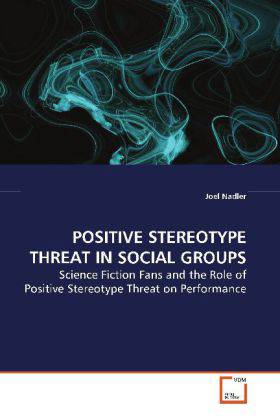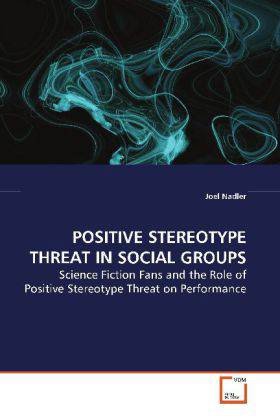
Je cadeautjes zeker op tijd in huis hebben voor de feestdagen? Kom langs in onze winkels en vind het perfecte geschenk!
- Afhalen na 1 uur in een winkel met voorraad
- Gratis thuislevering in België vanaf € 30
- Ruim aanbod met 7 miljoen producten
Je cadeautjes zeker op tijd in huis hebben voor de feestdagen? Kom langs in onze winkels en vind het perfecte geschenk!
- Afhalen na 1 uur in een winkel met voorraad
- Gratis thuislevering in België vanaf € 30
- Ruim aanbod met 7 miljoen producten
Zoeken
Positive Stereotype Threat in Social Groups
Science Fiction Fans and the Role of Positive Stereotype Threat on Performance
Joel Nadler
Paperback | Engels
€ 71,95
+ 143 punten
Omschrijving
This work examined stereotype threat within social groups and whether stereotype threat would be seen with a positive stereotype. Stereotype threat is usually seen as a decrease in performance induced by an anxiety within individuals fearing they will confirm a pre-existing and culturally-known negative stereotype. Science fiction fans were compared to a matched sample of college students. Both groups were given a 50-item problem-solving task described as an intelligence test. Individuals were randomly assigned to one of three conditions (1) no threat condition, (2) general threat condition, participants were told that people are underperforming, or (3) specific threat condition where participants were told that science fiction fans were underperforming. It was hypothesized that members of the social group science fiction fans would be affected by a stereotype threat effect and, therefore, underperform compared to non-members on the task in the specific threat condition. This work aimed to generalize stereotype threat to non- academic situations within socially-constructed groups and to positive stereotypes. The results did not support the hypotheses.
Specificaties
Betrokkenen
- Auteur(s):
- Uitgeverij:
Inhoud
- Aantal bladzijden:
- 84
- Taal:
- Engels
Eigenschappen
- Productcode (EAN):
- 9783639161564
- Verschijningsdatum:
- 29/05/2009
- Uitvoering:
- Paperback
- Formaat:
- Trade paperback (VS)
- Afmetingen:
- 152 mm x 229 mm
- Gewicht:
- 136 g

Alleen bij Standaard Boekhandel
+ 143 punten op je klantenkaart van Standaard Boekhandel
Beoordelingen
We publiceren alleen reviews die voldoen aan de voorwaarden voor reviews. Bekijk onze voorwaarden voor reviews.









